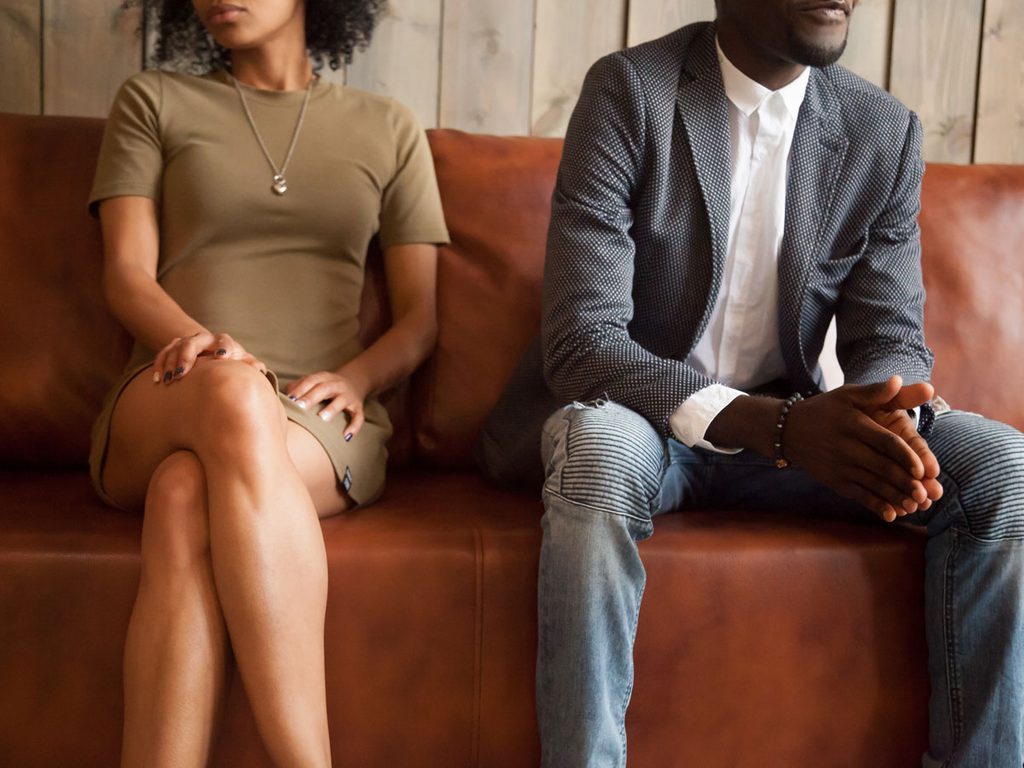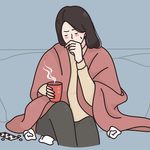Why Covid-19 Is Killing Your Sex Drive

If you've seen a downturn in your sex drive, these sexual health experts say you're not alone.
Although low sex drive could be due to many different personal and health issues, the fact that we’re living through a global pandemic is another reason your sex drive might be suffering.
The Covid-19 pandemic is ongoing, so new research and data are constantly emerging about sexual desire. Preliminary results from one survey of 3,000 Americans found that most people are not turning to sex to help cope with coronavirus-related stress and anxiety. (The finding is from the Collaborative Outcomes Study on Health and Functioning During Infection Times (COH-FIT), an ongoing international survey that aims to gauge mental health during the pandemic.)
Another study of 459 people in China, published in July in The Journal of Sexual Medicine, found that one in four experienced a reduction in sexual desire related to the coronavirus pandemic at the height of lockdown in March. About 37 percent of participants reported a decrease in sexual frequency, while 32 percent of men and 39 percent of women reported less sexual satisfaction.

Why the pandemic may affect your libido
Ian Kerner, licensed marriage and family therapist and sex therapist in New York City, and author of She Comes First, has seen a dip in both partnered sex and libido since the start of the pandemic. It’s important to note that, even without a pandemic and social and political conflict, libido is variable to begin with, according to Kerner. “I think we have this idea that libido is stable, and it’s never really stable,” he says. “It’s a function of so many different factors.”
Some of the things that cause variability in your libido include your age, medications, smoking and drinking habits, self-esteem, body image, and your current relationship with your sexual partner. All of these things affect libido with or without a pandemic, according to Kerner.
Stress and anxiety
From a biological perspective, a global pandemic signals to most, even on a subconscious level, that this is not a safe or stable time to procreate, according to Alisa Ruby Bash, licensed marriage and family therapist, in Malibu, California. “All in all, unless you happen to be in the midst of the honeymoon phase of your relationship, or in an extremely passionate, loving affair, chances are, for most people, this has been a time of reduced libido,” Bash says.
(Related: 31 Natural Libido Boosters)
Stress, anxiety and depression can reduce your sex drive. The pandemic has been a major source of all three, from the initial shock and fear in the early days of the pandemic, to the stress of changing government policies, mixed messages, and no clear end in sight.
Others continue to remain in a hypervigilant state, according to Bash. They have heightened anxiety about getting sick, losing loved ones, infecting others, on top of all the financial catastrophes so many have experienced, including the loss of jobs, income, lifelong dreams, and businesses.
There’s so much more to worry about, adding to anxiety and diminishing libido. While sex can be a healthy coping mechanism or outlet for anxiety, often stressors and anxiety get in the way of sex.
Living with family
Some people have moved back in with family to wait out the pandemic, which presents yet another sex hurdle.
Although living together may be good for your wallet, it might make intimacy a challenge for some. Many couples might feel like they don’t have the same privacy level as they once did to enjoy sex, Kerner explains. Other couples might also be dealing with having the kids (or parents) at home all the time.
Lack of variety
A big part of what happens in the bedroom is what happens outside of the bedroom, too. Many people don’t have opportunities for date night and the chances to expand and experience new things that may boost mood or desire. “Eros and libido are about life energy and erotic energy, and a lot of people are not at their sexiest selves,” Kerner says.
Workouts are less frequent, and sweatpants are the new cute date clothes. Although there’s nothing inherently wrong with that, they could be hurting your sex drive.
In short, there’s a little less sexiness in the air thanks to predictability, stressors, familiarity, and a lack of fun activities.
(Related: 13 Sex Problems You Should Take Seriously)
Lack of opportunity for sex
People who are single may feel lonely, isolated, and concerned about dating or in-person contact in the age of Covid-19. Even though singles might be having less sex, that doesn’t necessarily mean their libido is down.
“If you’re single and you’re on your own a lot, and you used to be dating, you may be really pent up,” Kerner says. Not having as many sexual outlets might mean your libido is actually higher — there just might be limited opportunities for sexual gratification with a partner.

How to increase your libido
Make time for sex
Increasing your libido and the frequency of intimacy starts with carving out time for sex. And some couples are really taking this time as an opportunity to reconnect sexually. Couples can make a fun project of their sex life. Incorporate sex toys, explore kinks, have sex at different times of the day or in different rooms, or just try something you’ve always wanted to but never had time to do, according to Kerner.
“If you’re quarantining with parents or family, don’t look at this as a limitation but as an opportunity to find a way,” Kerner says. The pandemic is all about limitations and constraints. This could compel people to think more creatively about ways to become sexual with your partner. “Where there’s libido, there’s a way.”
Bash also recommends getting out of the house when you can. She suggests using this opportunity to go on creative dates to rekindle the romance and connect to things that bring joy. “Laugh, find the humour in all of this madness, and marvel at the beauty of nature, and the bigger picture of life,” says Bash.
Communicate your needs
Talking about your sexual desires and needs is a vulnerable topic. You have to establish some emotional safety and step out of your comfort zone to discuss your feelings. Kerner recommends using “I statements” and trying not to blame your partner about the current state of your sex life.
Use this time to work through tensions and issues that may have arisen with clear, intimate communication. “Speak your truth and make that effort to reach out for support, love, and compassion,” Bash says.
Explore non-partnered sex
If you are single, take this time to attempt to enjoy, reconnect, and take care of yourself. (This goes for people in relationships, too, but especially for singles.)
Even if dating and in-person contact are off the table, it’s still possible to positively impact your sex drive. Prioritize self-care and things that make you feel comfortable in your body, from a warm bubble bath or luxurious lingerie to a 10-minute yoga routine or meditation.
Another self-care item worth buying now is a sex toy. Reports from the New York Times found an increase in sex toy sales compared to 2019. In fact, the New York Department of Health explains in their Covid-19 guidelines that you are your safest sex partner. Wash your hands and any sex toys with soap and water before having sex, the guidelines recommend.
(Related: How to Introduce Sex Toys Into Your Relationship)
The takeaway
Seeing changes in your libido throughout the pandemic is normal. If your libido changed and is still changing during the pandemic that’s OK. It’s also OK if you’re not interested in altering your current state. “Chances are there will be many long-term effects on people’s mental health, and so much PTSD that people have experienced in this period of time,” Bash says. “However, I don’t think it will create a permanent dip in libido for most.”
As life does eventually normalize, on some level, and can to regain some sense of control, libidos will stabilize as well.
Next: Covid Couples Therapy: How to Talk About the Tough Stuff Without Losing Your Cool




